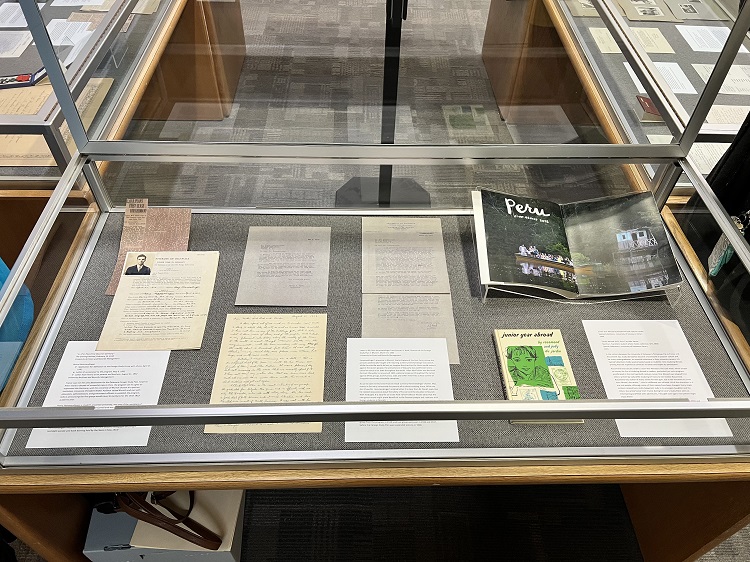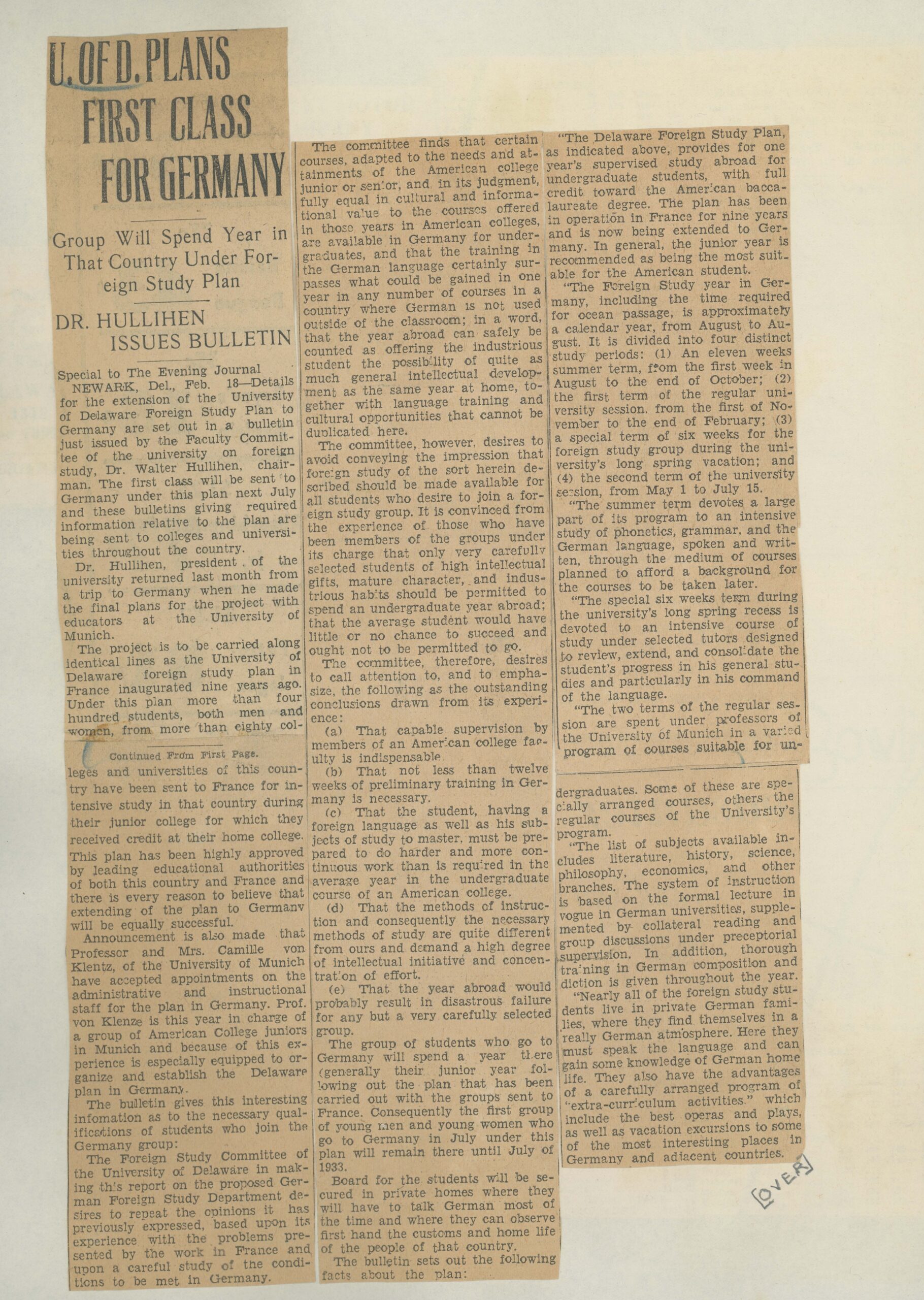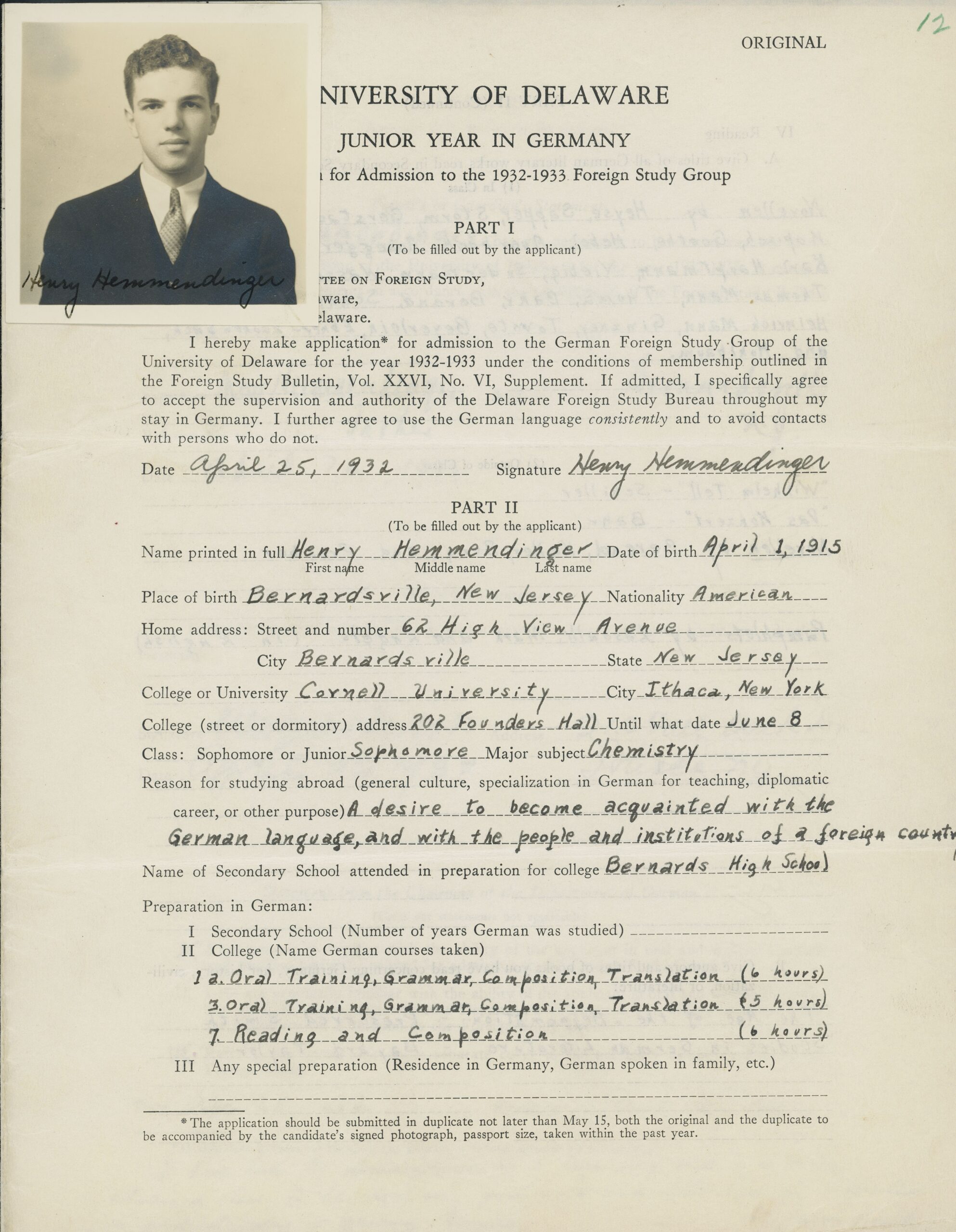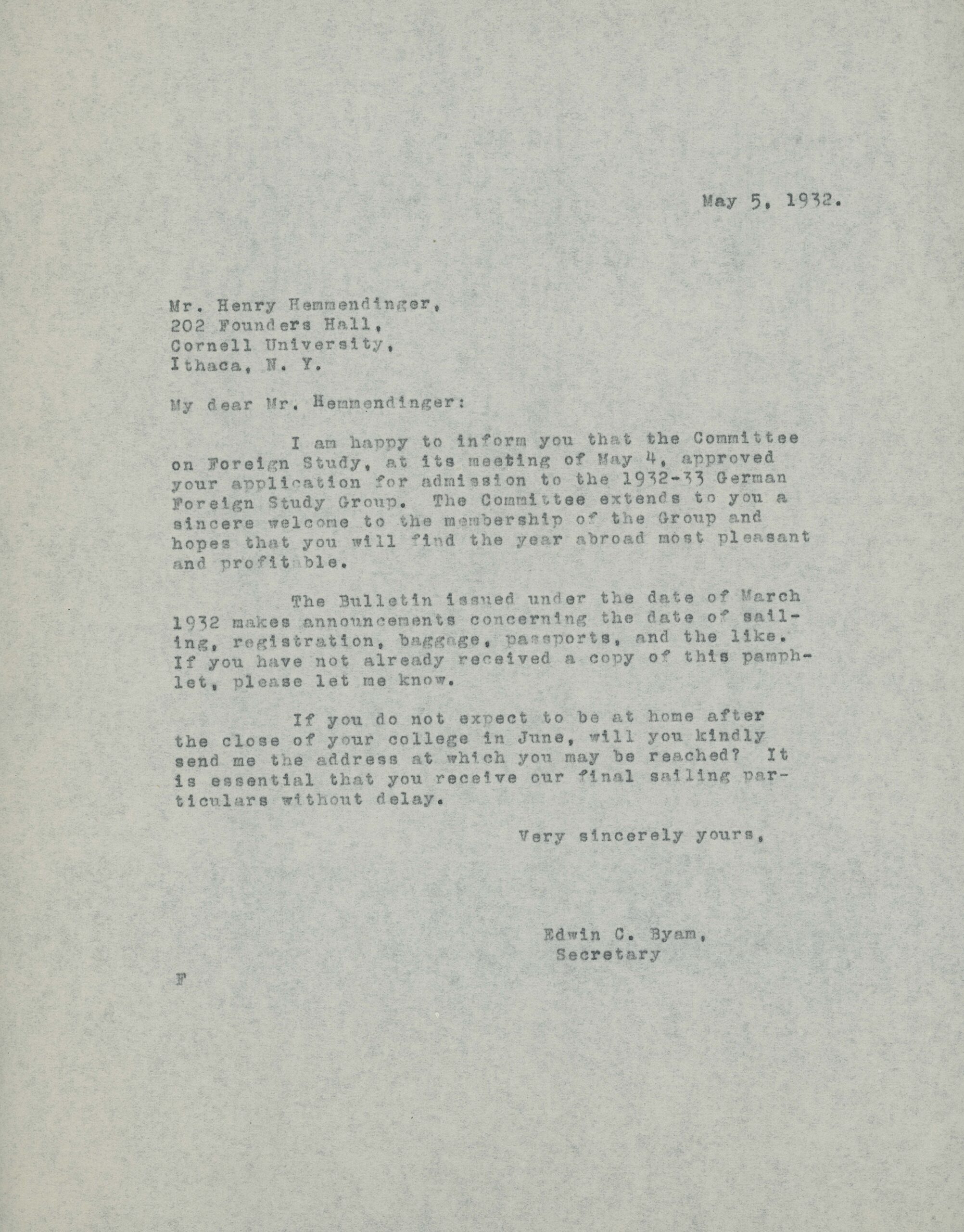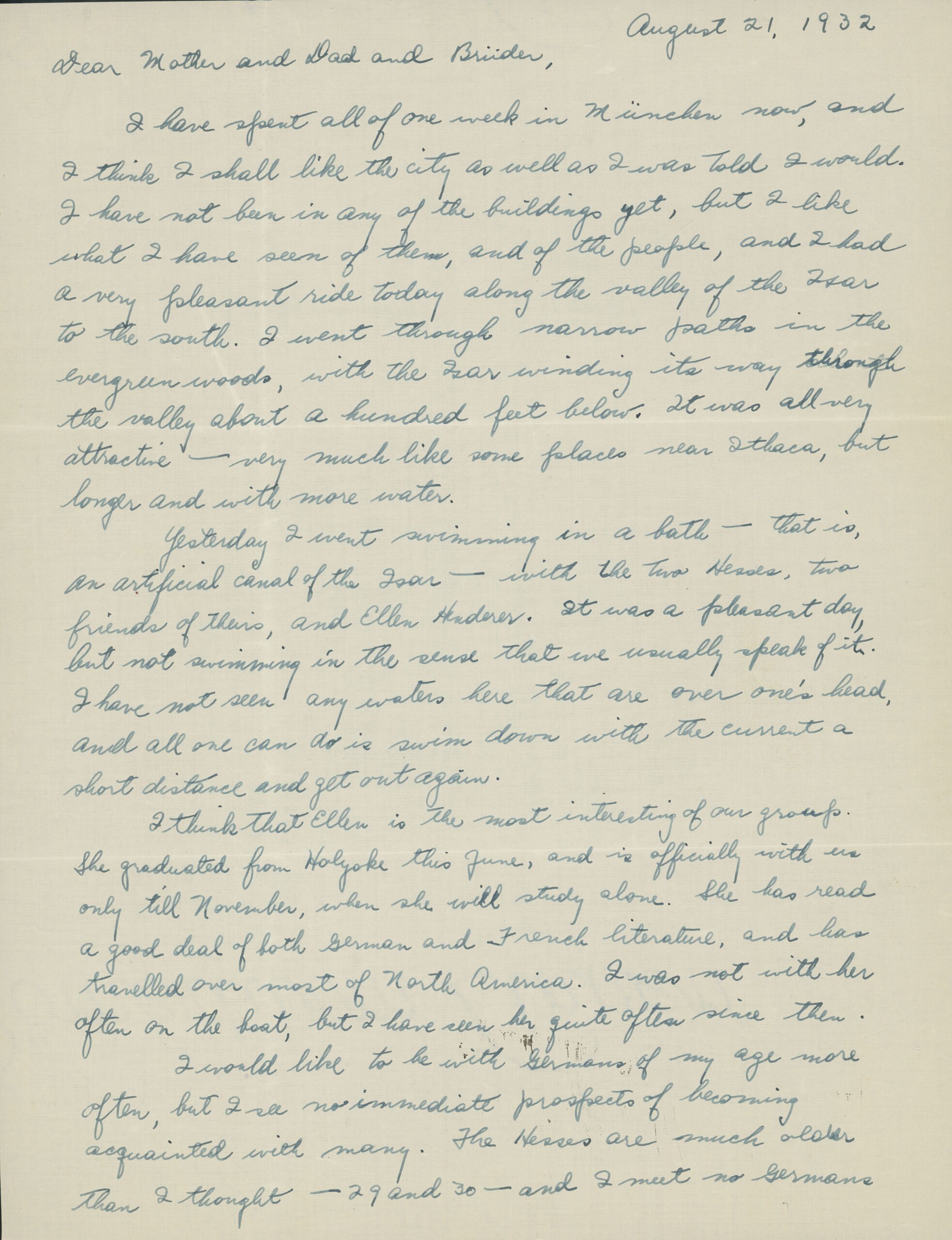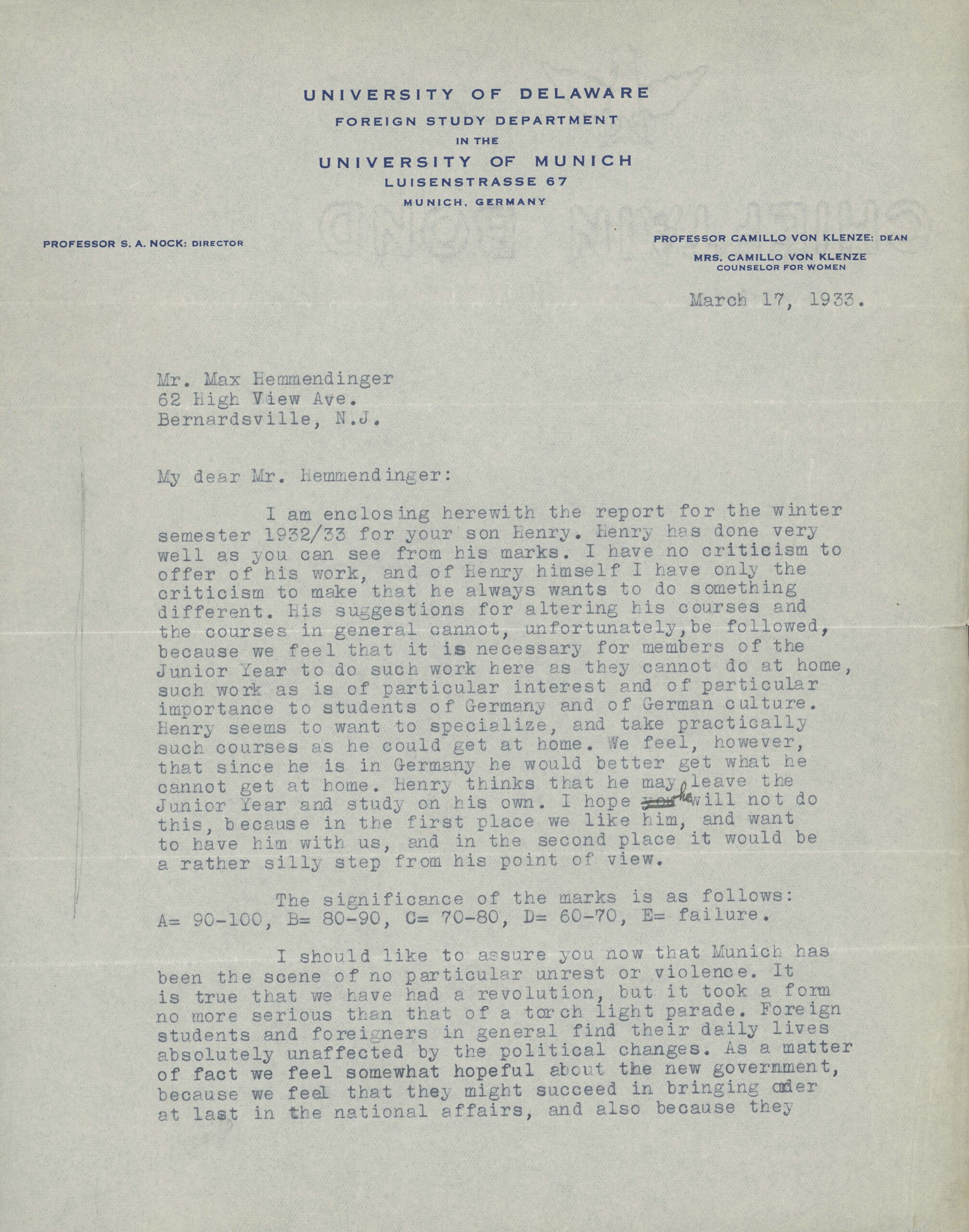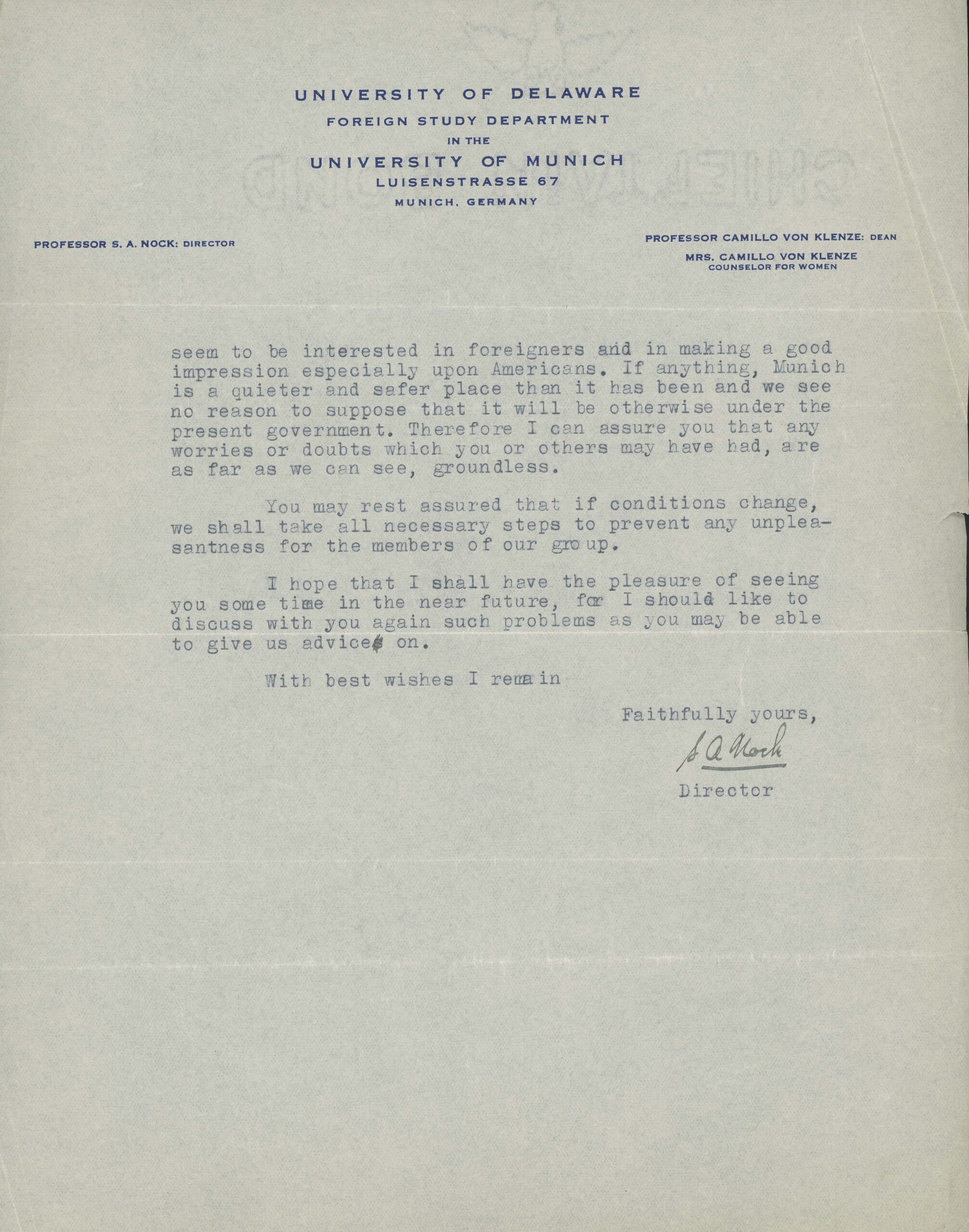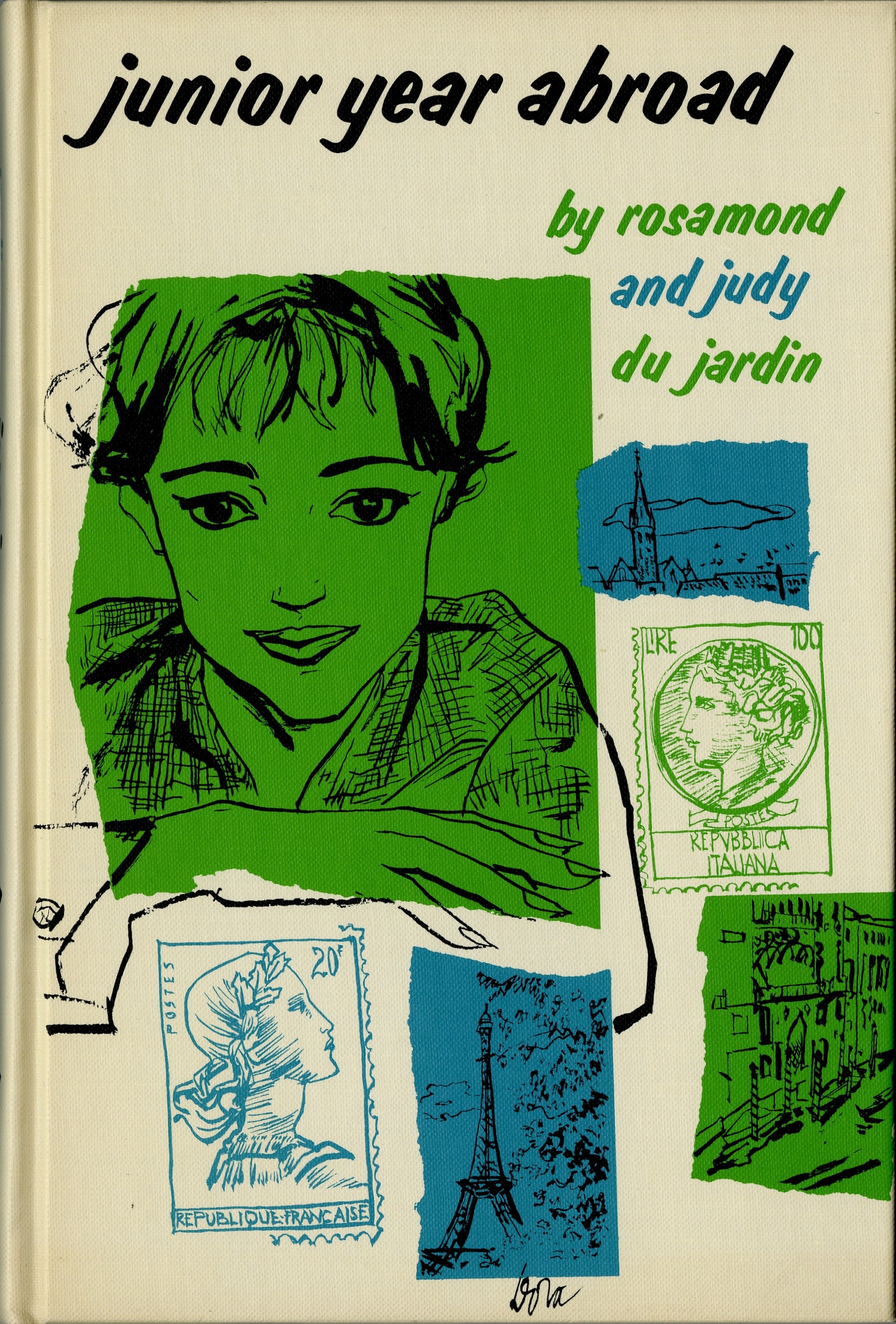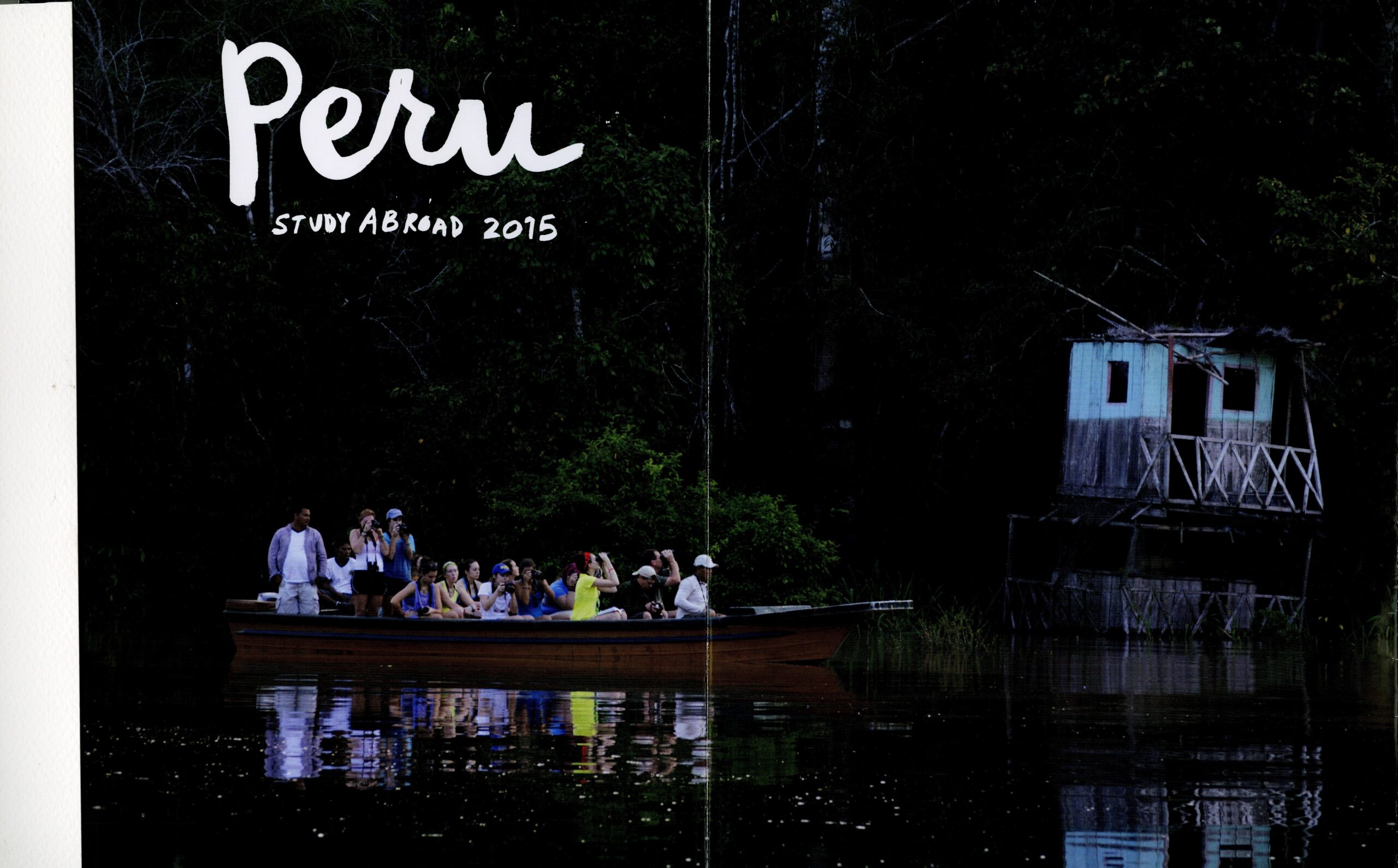France was not the only destination for the Delaware Foreign Study Plan, however. After nearly a decade of successful trips to Paris, the program set its sights on expansion into Germany, with the University of Munich chosen as a partner institution. University President Walter Hullihen visited Munich and met with educators, administrators, and government officials to establish the program, before announcing the first group would travel to Germany for the 1932-1933 academic year.
Henry Hemmendinger, a student at Cornell University, was one of the members of that first group. He had started early at Cornell and was only 17 when he left for Munich in the summer of 1932, the youngest member of the group. Henry kept up an extensive correspondence with his parents and two brothers during his time abroad, detailing his activities, impressions of Munich, the German people, cultural events, the other locations to which he traveled and even the rise of the Nazi Party, which had assumed a majority in the German Government in 1932. Hemmendinger’s missives home included a Munich student newspaper detailing a torchlight parade and book burning held by the Nazis in May 1933.
Hemmendinger’s presence in Munich, the birthplace of the Nazi Party, during this period is additionally fraught with meaning as he was Jewish. While the outside world did not yet imagine the atrocities the Nazis would commit against the Jewish people, the antisemitism of the party was well known and a cause for concern for Jews throughout the world. After Adolf Hitler was declared German Chancellor in January of 1933, violence broke out throughout the nation against leftist groups, Communists, Jews and other minorities as Nazi control of the government was essentially complete.
As can be seen in the letter above from Dr. Nock to Henry Hemmendinger’s father, Max, events in Germany concerned the parents of students studying there. While we don’t have Mr. Hemmendinger’s original letter, it is clear from Dr. Nock’s reply that he needed reassurance about the safety of his son and the situation in Munich. With hindsight, it is easy for us to see how naïve Professor Nock’s ideas that the new government might prove beneficial to the German people and relations with foreign students in Munich.
The Delaware Foreign Study Plan would send one more group in 1933-1934 to Munich. However, by the end of that trip, citing the rising tensions in Germany and potential danger to students and staff, Delaware ended their German program. Students in the program would continue traveling to France until 1939, when the specter of war put a stop to such travel. Geneva, Switzerland hosted one group from the program in 1938, and two groups post-war in 1946 and 1947, before the Foreign Study Plan was suspended entirely in 1948.
In the century between the University of Delaware’s first group trip to France and the present day, study abroad has become a touchstone in popular culture and, for many undergraduates, an essential milestone in their university careers. UD Special Collections holds several books based on students’ time studying abroad, proving that the experience continues to excite and inspire its participants.
Rosamond and Judy Du Jardin’s Junior Year Abroad is one such book, which sought to convey the fun of studying abroad to readers, particularly as such programs proliferated in the mid-twentieth century. Junior Year Abroad was adapted from letters written by Judy while studying in France to her mother Rosamond. Rosamond was author of many novels for teen girls, but in her foreword to Junior Year Abroad, she wrote: “…this is a different sort of book. All of the characters in it are real people, although some of their names have been changed. Every single incident related here really happened. Judy is my youngest daughter and the letters she wrote home from France during her year's study there were so entertaining and filled with adventures, I thought teen-agers everywhere might enjoy them.”
A more recent student from UD, Allie Yacina, studied abroad in Peru in 2015 and made a book with photographs and reminiscences of this trip upon her return. Yacina’s book is part of the Martha L. Carothers student artists' books collection, which comprises over 500 artists' books created by students of Carothers' ART 309 course at the University of Delaware from 1983 to 2016. Besides Yacina’s book, this collection includes several others inspired by travels abroad.

